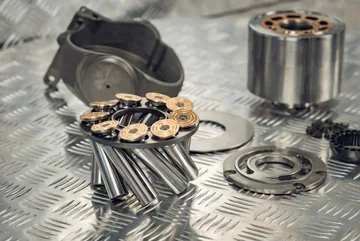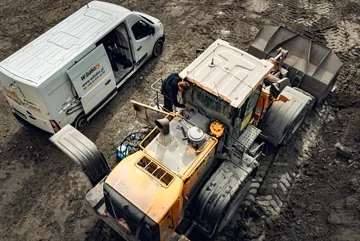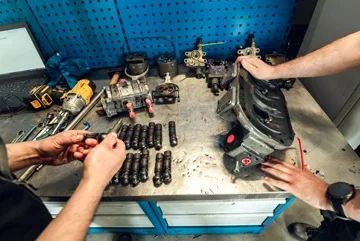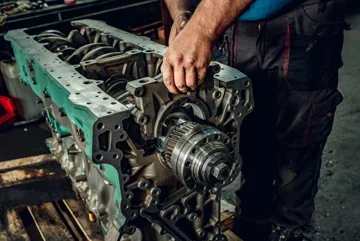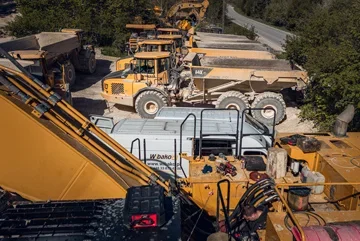The internal combustion engine, especially the diesel engine, is the heart of almost every construction machine, and the choice of the right engine block is crucial for its performance, durability, and regeneration capabilities.
In today's post, we will take a look at the three main types of engine blocks used in internal combustion engines: monoblocks, dry sleeve blocks, and wet sleeve blocks. Each of these designs has its pros and cons, which affect their application in different conditions.
Monoblock – maximum durability
A monoblock is a solid structure in which the cylinders are an integral part of the engine block. Typically made of ductile iron, they provide exceptional stiffness and resistance to deformation. This type of block is particularly popular in diesel engines, where strength and reliability are key.
Advantages of monoblocks:
- High durability and resistance to high loads typical of diesel engines.
- No separate components that could cause leaks.
- Compact design, ideal for machines with limited space.
Disadvantages of monoblocks:
- Expensive regeneration requiring precise sleeving.
- Limited possibility of replacing individual components.
Monoblocks are often used in diesel engines of brands such as Cummins, Caterpillar, and Deutz, especially in compact, medium, and smaller construction machines.
Dry sleeve block – a compromise between monoblock and wet sleeves
A dry sleeve block combines the strength of a monoblock with the ability to replace worn sleeves. The sleeves are pressed into the block, making their replacement possible without having to replace the entire engine. This solution is often found in diesel engines, where both durability and ease of servicing are important.
Advantages of dry sleeve blocks:
- The ability to replace sleeves without having to replace the entire block.
- Greater durability than wet sleeves.
Disadvantages of dry sleeve blocks:
- Less effective cooling compared to wet sleeve blocks.
- Limited thermal resistance in harsh working conditions.
Dry sleeve blocks are often found in Perkins diesel engines, used in backhoe loaders and agricultural machines.
Wet sleeve block – best cooling and easy regeneration
Wet sleeve blocks are designed for the most demanding applications. The sleeves are surrounded by coolant, which significantly improves the thermal efficiency of the engine and facilitates the replacement of worn components. This solution is particularly popular in heavy machines, where cooling and ease of servicing are crucial.
Advantages of wet sleeve blocks:
- Best cooling efficiency due to the direct contact of the sleeves with the coolant.
- The ability to replace sleeves without disassembling the entire engine.
Disadvantages of wet sleeve blocks:
- Risk of leaks with improper installation.
- Susceptibility to corrosion, especially when using regular water instead of the appropriate coolant.
This type of construction is used in the heaviest construction machines, such as bulldozers, excavators, or mining machines, where internal combustion engines operate under enormous loads.
Which internal combustion engine block to choose?
Each of the described types of engine blocks has its advantages and disadvantages, as well as its specific applications:
- Monoblock – ideal for compact and medium machines operating under heavy loads.
- Dry sleeve block – a compromise between durability and regeneration capability, used in agricultural and construction machines.
- Wet sleeve block – best for the heaviest applications, where cooling efficiency and easy sleeve replacement are crucial. The choice of the right internal combustion engine block, especially diesel, depends on the machine's purpose and the manufacturer's preferences. Each of these solutions has its place in the construction and industrial sectors, and understanding them allows for better adaptation of the machine to specific working conditions.
The entire video can be seen here.













